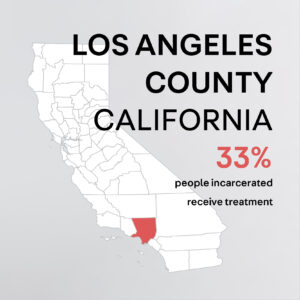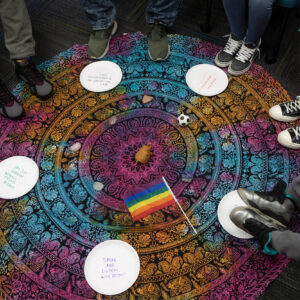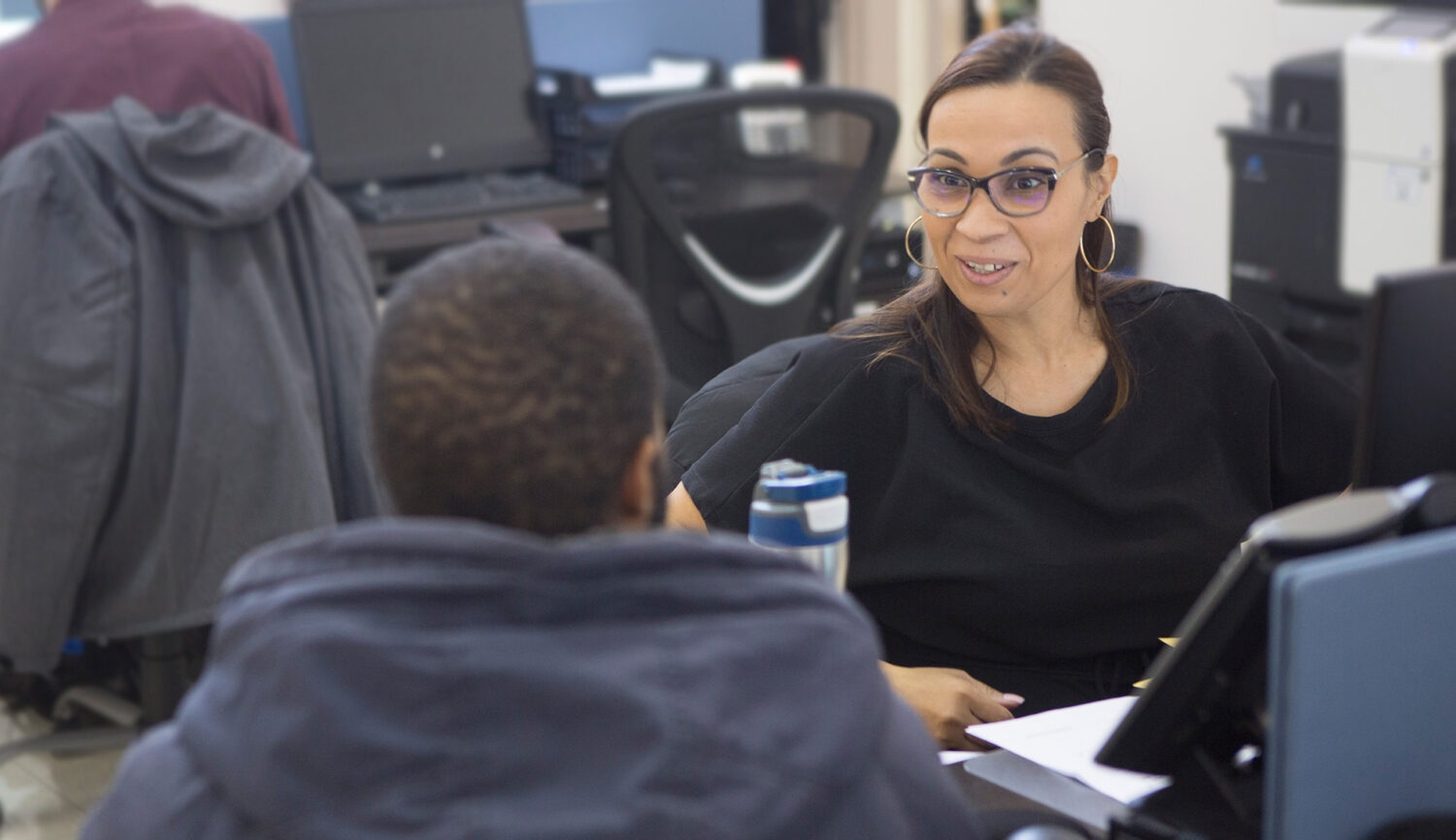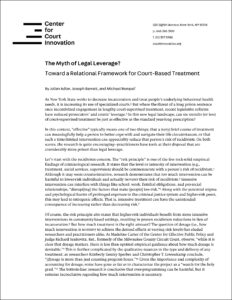Access to mental health treatment for all—in a courtroom or in the community—is critical. It’s long past time to break the cycle of mental illness and confinement.
Forty-five percent of people in our Supervised Release Program are flagged for potential mental health needs and about 16 percent of people currently held in Rikers Island jails have been diagnosed with a serious mental illness. These numbers highlight the disproportionate representation of those with mental health needs who get caught up in the justice system. Without access to treatment, these needs may linger or worsen, and can lead to further involvement in the justice system.
Whether working with clients in a court-based setting, with people after release from incarceration, or in the community, our approach to mental wellness focuses on identifying the individual needs of the person and addressing underlying issues with evidence-based, trauma-informed practices. We also work alongside communities and with youth to foster healthy responses to stress, trauma, and exposure to violence in an effort to promote mental wellness, prevent involvement in the justice system, and build stronger communities.
As we deal with the ever-changing reality of COVID-19, we are continuing this crucial work with communities across New York City to provide support at this challenging time.
Making Court-Based Treatment Meaningful
The Myth of Legal Leverage
The threat of incarceration is often used as the “stick” to ensure people’s meaningful participation in court-based treatment. But our new research brief, ‘The Myth of Legal Leverage?’ explains that treatment can still be effective by maximizing the use of evidence-based practices, building strong therapeutic relationships, and engaging in procedural justice. More important than legal leverage is the quality of the human interaction that accompanies it.
Working with Felony Offenders: Brooklyn Mental Health Court
Our Brooklyn Mental Health Court was one of the first mental health courts in the country and serves as a national model for how to ensure community-based treatment to defendants with serious mental health diagnoses. It has helped more than 1,000 people—including those charged with violent felony offenses—avoid jail and reduced recidivism by 46 percent. Currently, the Court is supporting people with critical mental health needs who are being released early from New York City jails.
Addressing the Mental Health Needs of Those Facing Low-Level Charges
The Center for Justice Innovation has reduced the use of incarceration by expanding judges’ sentencing options. Our court-based programs, like the Red Hook Community Justice Center and Bronx Community Solutions, assess the needs of those charged with misdemeanors, offering mental health services to those who can benefit. Our programs are flexible, a fact reflected in how they have adapted to the COVID-19 crisis. For example, our Bronx Community Solutions team in April conducted 750 remote counseling sessions and check-ins to provide mental health support, COVID-19 resources, employment referrals, and more.

Mental Health Diversion in LA County
Los Angeles is home to the largest jail population in the United States, and a third of the people incarcerated receives some kind of mental health treatment. A new mental health diversion pilot provides this population with supportive services instead of jail.
Working with Communities and Families is the Key to Prevention
The Center for Justice Innovation believes that its crucial to address mental health needs in the community to strengthen the health and safety of neighborhoods. The sooner those in need receive appropriate services, the less likely they are to be caught up in the justice system in the first place.
Reaching Young People
Youth Impact runs restorative circles to help teenagers address life challenges with the support of their peers. And numerous programs, like Queens Youth Justice Center and Strong Starts Initiatives, offer counseling and support for families and young people with cases in Family Court.
Preventing and Addressing Violence
Save Our Streets provides trauma-informed interventions to those at risk of engaging in violence. Red Hook CARES provides trauma-informed services to people who have witnessed or experienced violence.

Restorative Justice
Restorative justice promotes healing rather than punishment. It takes a holistic approach, taking into account the emotional, mental and material aspects of a conflict as it seeks to repair harm. Our Restorative Justice in Schools Program works with school staff and students to build relationships, to address conflicts, and to reduce exclusionary discipline. It was featured on PBS.
We also operate two peacemaking programs—one in Red Hook, Brooklyn, and the other in Syracuse, New York. Facilitated by trained peacemakers from the community, peacemaking sessions enable those affected by a dispute to “talk it out” and reach agreement about restitution and repair. We’ve also been using restorative justice practices to address the mental health and wellness of our staff as we respond to the global COVID-19 pandemic.

